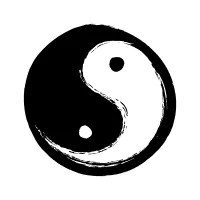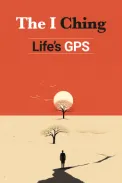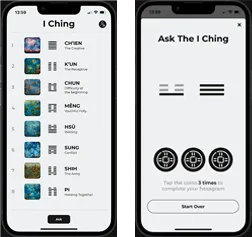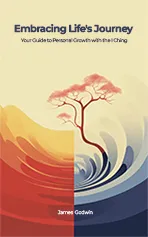
The I Ching, also known as the Book of Changes or Yijing, stands as a cornerstone of Chinese philosophy, offering insights into the cosmos, divination practices, and the interplay of yin and yang. This ancient text, rich in history and wisdom, continues to fascinate scholars, practitioners, and seekers of wisdom around the world. Whether you're drawn to its philosophical depth, interested in its divination methods, or curious about its influence on Chinese culture and beyond, this article promises a comprehensive exploration of the I Ching's multifaceted essence. Discover why the I Ching remains a revered source of knowledge and guidance through the ages.
Introduction the I Ching
The I Ching, often referred to as the Book of Changes, represents a pinnacle of ancient Chinese literature, esteemed not only as an oracle for divination but also as a cornerstone of Taoist philosophy. This venerable Chinese book, whose genesis stretches back to the Zhou Dynasty, weaves together the fundamental Taoist principles of yin and yang, emphasizing the perpetual flux and the intrinsic balance within the cosmos. It has served generations as a guide for navigating the vicissitudes of life, offering wisdom that resonates with the rhythm of the universe itself.
The translation of the I Ching by Richard Wilhelm has played a pivotal role in introducing this ancient text to a global audience, illuminating its profound insights into the nature of change and the art of divination. As an oracle, the I-Ching provides a unique method for exploring potential outcomes and understanding the underlying dynamics at play in any situation. Through its sixty-four hexagrams, the I-Ching offers a mirror to the soul, reflecting the interconnectedness of human experience with the Taoist vision of the universe.
The History of the I Ching
The I Ching stands as one of the oldest of the Chinese classics, tracing its origins to the final centuries of the 2nd millennium BCE, where it began its journey as a divination manual. Throughout its evolution, it has been sculpted by the contributions of seminal figures such as King Wen, the Duke of Zhou, and notably, Confucius, whose philosophical commentaries have significantly deepened its layers, weaving it into the very fabric of Chinese intellectual history. This ancient Chinese divination text has been revered not just as a sacred book but as a profound Chinese classic that encapsulates the essence of Chinese divination practices. Its survival and veneration through millennia underscore its pivotal role in shaping and reflecting the spiritual and philosophical landscape of China.
During the Han Dynasty, the I Ching was further entrenched in Chinese culture, evolving beyond its original scope to become a comprehensive guide on the principles of change, destiny, and harmony. This period marked the I Ching's cementation as a cornerstone of Chinese scholarly thought, integrating it more deeply into the realms of ethics, philosophy, and statecraft. As an ancient Chinese divination tool, the I Ching offered insights into the cosmic and moral order, illustrating the dynamic interplay of yin and yang and presenting a universe in constant flux yet guided by an underlying harmonious balance. Its status as the sacred book and the quintessential divination manual reflects its unmatched influence in the annals of Chinese wisdom literature, continuing to inspire and guide individuals in navigating life's uncertainties.
Understanding Hexagrams: The Language of the I Ching
At the heart of the I Ching are the 64 hexagrams, symbolic representations composed of six lines each that can be broken or unbroken, corresponding to yin and yang. These hexagrams serve as the foundational language through which the I Ching communicates its insights, offering guidance on a wide array of situations and dilemmas. Learning to interpret these hexagrams is key to unlocking the I Ching's profound wisdom.
The I Ching and Divination Practices
Divination practices with the I Ching, also known as the Ching or Book of Changes, incorporate methods steeped in ancient tradition, notably the casting of yarrow stalks or the tossing of three coins to form a hexagram. This intricate process, aimed at seeking guidance or answering profound questions, is a testament to the advantages this book offers as a bridge between the human experience and the universal principles of harmony and balance. Such practices are not mere rituals; they are deeply emblematic of the Chinese cosmological vision, where the interconnection between humanity and the cosmos is articulated through symbols like the broken line, the unbroken line, and the eight trigrams, which form the foundation of the 64 hexagrams. This method of ching divination is a reflection of Confucianism's emphasis on moral wisdom and harmony in life's decisions, illustrating how this book became an indispensable tool for navigating the vicissitudes of existence within the framework of the cosmic order.
The use of yarrow stalks or coins in ching divination facilitates a connection to the ancient wisdom of the I Ching, allowing practitioners to tap into the book's deep reservoirs of knowledge. Through this process, the resulting hexagram, composed of six lines that may be broken or unbroken, reflects the dynamic interplay of yin and yang, embodying the profound philosophical underpinnings of the I Ching. This practice underscores the book's role as a comprehensive guide to understanding life's complexities and uncertainties. The eight trigrams and sixty-four hexagrams serve not just as tools for prediction, but as symbols of the elemental forces and principles that govern the universe, offering insights that have guided individuals and scholars alike through the ages. In this way, the I Ching, or Book of Changes, continues to be a source of wisdom and a means of divination that aligns personal inquiries with the deeper patterns of the world, affirming its enduring relevance and the advantages it provides in seeking clarity and direction.
The Zhou Dynasty and the Evolution of the I Ching
During the Zhou Dynasty, a pivotal era in the recorded history of China, the I Ching underwent significant transformation and standardisation, marking a key phase in its evolution into a cornerstone of Chinese wisdom and spirituality. It was in this period that the foundational principles and practices associated with the I Ching were systematised, reflecting the early Chinese commitment to harmonising human affairs with the universal order. The dynasty's scholars and sages, including figures like King Wen and the Duke of Zhou, played instrumental roles in this process, their contributions immortalising the I Ching as an essential component of Chinese intellectual heritage. This era not only facilitated the expansion of the I Ching's content through philosophical commentaries but also began the tradition of scholarly ching studies, deepening the knowledge of the I Ching and its application in guiding moral and ethical decisions.
The Zhou Dynasty's contributions to the I Ching were further magnified by efforts to translate and interpret the text, making its wisdom accessible to a broader audience and allowing it to influence other cultures and intellectual traditions beyond early Chinese society. These translations and scholarly pursuits have been pivotal in preserving the I Ching through centuries, ensuring its relevance and applicability in various contexts. The period also saw the cultivation of a sophisticated understanding of the I Ching among scholars, who delved into its complexities to extract insights on governance, personal conduct, and the workings of the cosmos. The Zhou Dynasty's legacy in the realm of ching studies has laid the groundwork for subsequent generations, ensuring that the knowledge of the I Ching, its practices, and its philosophy continue to enrich Chinese culture and the wider world. This foundational work underscored the importance of the I Ching in articulating the principles of change and continuity that underpin the universe, cementing its role as a vital source of wisdom in the annals of Wu and beyond.
Commentaries and Interpretations Through the Ages
Throughout the centuries, the I Ching has been the subject of extensive commentaries and interpretations, enriching the text with diverse perspectives that span from Confucian ethics to Daoist metaphysics. These scholarly works have delved into the intricate meanings of the I Ching's hexagrams, each composed of unique combinations of Chinese characters, to offer guidance and wisdom on life's myriad situations. The translation of these texts into various languages has further broadened the scope of its influence, allowing the I Ching, or the Classic of Changes, to transcend cultural and linguistic barriers. This proliferation of commentary has not only illuminated the philosophical depth and practical applications of the I Ching but has also underscored the advantages of this book as a tool for understanding the complexities of human life and the universe at large.
The array of interpretations surrounding the I Ching hexagrams has contributed to its status as a living document, one that evolves with each new reading and application. These commentaries, grounded in the symbolic language of Chinese characters, have explored the profound symbology of the Classic of Changes, offering insights into the dynamics of change and continuity that define existence. Through the translation of the text and the study of its commentaries, scholars and practitioners have continuously discovered new layers of meaning within the I Ching, reflecting its endless capacity to guide and enlighten. The rich tapestry of interpretations through the ages serves not only as a testament to the I Ching's enduring relevance but also as a source of endless exploration and discovery for those seeking wisdom in its pages.
The Influence of the I Ching on Chinese Culture
The I Ching's profound impact on Chinese culture is evident across millennia, transcending its origins as a divinational manual to become a foundational element in literature, art, and the governance principles that have guided China through its long and storied history. Its teachings on harmony, change, and balance resonate deeply within Confucianism, shaping societal norms and personal ethics that continue to influence modern Chinese society. Scholarly works, such as those published in the 'Journal of Chinese' studies and supported by the 'Association for Asian Studies,' have meticulously documented and described the I Ching's pervasive role in shaping the cultural and intellectual landscape of China. These studies highlight how the 'Chinese I Ching' has been instrumental in cultivating a worldview where adaptability, equilibrium, and moral integrity are paramount, showcasing the text's advantages as a book of timeless wisdom and practical guidance.
In the annals of recorded history in China, the I Ching stands as a testament to the enduring appeal and relevance of ancient wisdom in contemporary times. It has inspired generations of poets, artists, scholars, and leaders, who have drawn from its pages principles that apply not only to personal development and spiritual growth but also to the art of governance and social harmony. The way the I Ching describes the interplay of cosmic forces and human affairs has fostered a unique cultural ethos, one that embraces change as an inherent aspect of life and seeks balance amidst the ceaseless flux. This enduring influence underscores the I Ching's status not just as a sacred text or divination tool but as a cornerstone of Chinese cultural identity, offering insights that continue to enrich and inform the collective consciousness of China and beyond.
Carl Jung and the West’s Fascination with the I Ching
Carl Jung, the Swiss psychiatrist renowned for his exploration of the depths of the human psyche, played a pivotal role in the West's embrace of the I Ching, drawn to its profound insights into synchronicity and the unconscious mind. His fascination with the I Ching's ability to bridge the tangible and intangible realms led to a groundbreaking examination of the text, highlighting its relevance to both individual psychology and the broader themes of cosmos and ordering the world. Jung's theories on archetypes and the collective unconscious found a resonant echo in the I Ching's use of hexagrams, which he saw as a binary system reflecting the fundamental dualities of existence. Through his work, published and widely disseminated by institutions like Princeton University Press, Jung facilitated a cross-cultural dialogue that brought the ancient wisdom of East Asia to the forefront of Western thought, encouraging a deeper understanding and appreciation of the I Ching's psychological dimensions.
Jung's introduction of the I Ching to the Western world went beyond academic curiosity, sparking a broad cultural interest in Eastern philosophies and divination practices. His commentary on the I Ching, including the story of hexagrams sent to Gottfried Wilhelm Leibniz, demonstrated the text's early influence on the development of the binary system, underscoring the interconnectedness of scientific thought and mystical traditions across cultures. This narrative, perpetuated by university presses and scholarly discourse, highlighted the I Ching's integral role in the global tapestry of knowledge, bridging the gap between the ancient and the modern, the East and the West. Jung's work thus catalyzed a lasting fascination with the I Ching, positioning it as a key text in the exploration of the human condition and its synchronistic relationship with the universe.
The I Ching in Modern Times: Relevance and Application
In the fast-paced environment of modern times, the I Ching stands as a beacon of wisdom and introspection, guiding those interested in understanding the deeper currents that influence their lives and decisions. Its text, meant to be read not just with the mind but with the heart, offers profound insights into personal development, decision-making processes, and the acceptance of life's inherent unpredictability. This ancient manual of wisdom, with its rich tapestry of hexagrams and the dynamic interplay of yin and yang lines, provides a reflective mirror for those seeking to navigate the complexities of contemporary life. The I Ching's relevance today is accentuated by its holistic approach to problem-solving and its emphasis on balance and adaptability, demonstrating the unique advantages this book brings to the quest for personal insight and growth.
Moreover, the I Ching's structure, encompassing the Ten Wings—commentaries added over time to enrich the original text—facilitates a deeper understanding of its teachings and applications. These commentaries extend the I Ching's reach beyond simple divination, offering philosophical and ethical guidance that resonates with individuals across the globe. The way the I Ching describes the interconnectedness of human actions and the cosmic order continues to inspire those interested in the I Ching, proving its utility not just as a divinatory tool but as a comprehensive guide to living. Through its enduring presence in literature, psychology, and spiritual studies, the I Ching remains a vital source of wisdom, inviting continuous exploration and reflection in a world that is ever-changing yet fundamentally connected by the timeless principles it espouses.
Guidance on Using the I Ching for Personal Insight
For individuals seeking to harness the wisdom of the I Ching for personal insight, the journey begins with a question that reflects their current predicament or decision point. By engaging in the ancient practice of divination—whether through the traditional method of yarrow stalks or the more accessible three-coin toss—a hexagram is generated, serving as a direct response from the I Ching. The ensuing task of interpreting the hexagram, as it describes the dynamics at play, requires a reflective engagement with the text. This process, detailed and revered throughout the I Ching, provides a unique lens through which one can view their circumstances, offering advice that has been sought after for millennia. The advantages of this book are manifold, providing not only a means of divination but also a profound source of philosophical wisdom that can illuminate the underlying forces shaping our lives.
The study of the I Ching, often incorporated into college courses and scholarly research, underscores its academic and spiritual value, guiding students and seekers in understanding its complex layers. As one engages with the text throughout this process, the I Ching reveals itself not merely as a tool for divination but as a deep well of wisdom that speaks to the human condition. It describes paths of action and ways of being that align with the cosmic order, encouraging introspection and mindful decision-making. For those interested in exploring the depths of their own experiences and choices, the I Ching offers a timeless framework for reflection, embodying the essence of ancient knowledge applicable to modern-day dilemmas.
Useful Links
- What is the I Ching
- History of the I Ching
- How to consult the I Ching
- Consult the I Ching Online
- Access all the I Ching Hexagrams 1 to 64
- Buy the book, Embracing Life’s Journey Your Guide to Personal Growth with the I Ching
- Discover Inner Peace, one day at a time
FREE Ebook - The I Ching: Life’s GPS

The Ultimate Guide to Life's Answers
Unlock ancient wisdom. Discover how the I Ching can guide your decisions and bring clarity to your path—your answers await.


